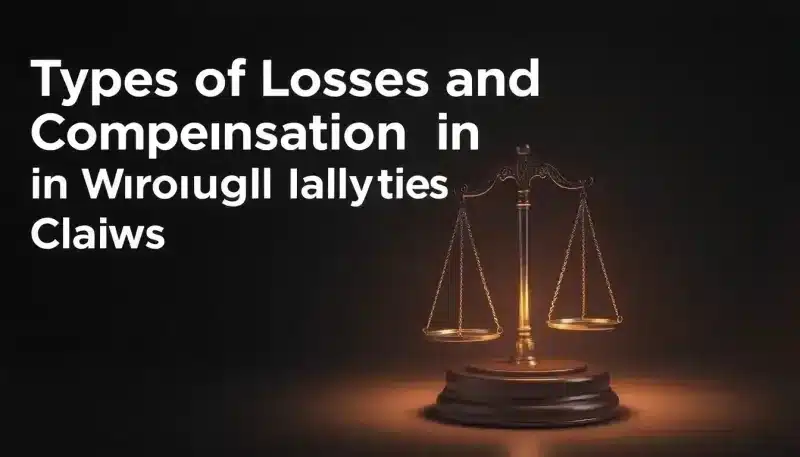Experiencing the loss of a loved one is one of the most challenging moments in life, especially when that loss occurs due to someone else's negligence or wrongful actions. Understanding the compensation options available in wrongful death claims can provide some sense of justice and financial relief for those left behind. This article will explore the various types of losses and compensations associated with wrongful death claims, particularly in Kansas.
Understanding Compensation in Wrongful Death Claims
In a wrongful death claim, both economic and non-economic damages can be sought. It’s important to grasp the distinctions between these types of losses, as they encompass different aspects of the impact experienced by survivors. In Kansas, the law establishes a cap of $250,000 for non-pecuniary losses, making it crucial for claimants to understand what can be included in their compensation requests.
The types of damages recoverable typically fall into the following categories:
- Economic Losses
- Non-Economic Losses
- Special Considerations
Types of Economic Losses
Economic losses are tangible and can be calculated in monetary terms. These losses often stem from the financial contributions that the deceased would have provided if they were still alive. Key components of economic losses include:
- Lost Income: The wages and salary that the deceased would have earned throughout their lifetime.
- Future Earnings: Potential earnings from career advancements or promotions that are now lost.
- Services Provided: Any household services, childcare, or support that the deceased would have contributed.
- Pension and Benefits: Loss of contributions to retirement plans or health insurance that the deceased would have provided.
- Medical Expenses: Costs incurred for medical care prior to the death, as well as funeral expenses.
Exploring Non-Economic Losses
Non-economic losses are more subjective and are not easily quantifiable. These damages reflect the emotional and psychological toll of losing a loved one. Some important aspects include:
- Loss of Consortium: The deprivation of companionship, affection, and support from the deceased.
- Mental Anguish: Emotional suffering experienced by the survivors, including grief and sadness.
- Pain and Suffering: The physical pain and emotional distress endured by the victim prior to death.
- Loss of Guidance: The impact on children and dependents who lose parental support and guidance.
- Bereavement: The overall emotional loss experienced by family and friends.
Additional Considerations in Wrongful Death Claims
In wrongful death cases, punitive damages may be pursued, which are designed to punish the defendant for particularly egregious behavior. However, these are rarely awarded unless a survival action is also filed, which allows the deceased's estate to claim damages for injuries suffered prior to death.
It’s also crucial to understand the statute of limitations applicable to wrongful death claims in Kansas. Generally, claimants have two years from the date of death to file a lawsuit. However, there are specific circumstances that may shorten this period:
- If a claim was not filed for a personal injury that led to the death.
- In cases involving medical malpractice where the victim survived for years before passing away.
- Only one wrongful death claim can be filed against a defendant, although multiple heirs may join the claim.
The Importance of Hiring an Experienced Wrongful Death Attorney
Navigating the complexities of a wrongful death lawsuit can be overwhelming. Therefore, securing the services of a knowledgeable attorney is essential. An experienced lawyer can help you understand your rights, gather necessary evidence, and represent your interests effectively in court. Consider the following points when choosing legal representation:
- Experience in Wrongful Death Cases: Look for attorneys who specialize in wrongful death and have a proven track record.
- Understanding of Local Laws: Ensure the attorney is well-versed in Kansas law regarding wrongful death claims.
- Compassionate Approach: Choose someone who understands the emotional toll of the situation and treats your case with sensitivity.
Conclusion
In the aftermath of a wrongful death, it is crucial to understand the types of compensation available. Both economic and non-economic losses play a significant role in the recovery process for survivors. By working with an experienced attorney, families can navigate the legal landscape more effectively, ensuring they receive the compensation that reflects their loss and suffering.

